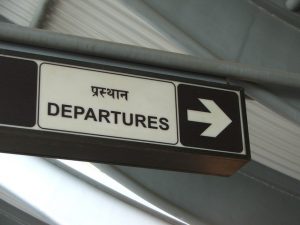Foreign travel is pricey and can be daunting for some, but there are techniques for conserving cash and remaining safe.

Research Study Regional Customs
Travel professionals have recommendations about exactly what to do as soon as you reach your destination, including the best ways to act. Behaviour that is acceptable at home might be discredited – and even unlawful – in lots of other nations. “Exactly what it comes down to is be considerate and be informed,” states Kyle Olson, who has composed a guide on do’s and don’ts in 11 nations for a Chicago law office.
For example, if you are embarking on an english teaching position in China, there are many do’s and dont’s you should be aware of. Typically for westerners, these customs may be strange and unimportant, but to the locals, it means getting on with them or not. the site I have linked to above, is an excellent resource if you are planning such an adventure.
His long list of don’ts consist of bringing leisure drugs, dressing scantily, drinking – a main taboo in Muslim nations – and, in lots of nations, taking pictures of military or federal government structures.
Insurance Coverage
Get travel insurance coverage, and check prior to your visit exactly what your medical insurance will cover if you get ill in a foreign nation. Think about evacuation insurance coverage – an air ambulance can cost countless dollars – and your personal or business ict risk mitigation procedures.
Money or Credit?
Money is convenient for little purchases, but numerous regular tourists stay with plastic overseas. If a clerk swipes your card and asks if you wish to pay in dollars, decline. The store most likely charges a less-favourable currency exchange rate than your card company.
Matt Kepnes, author of The Best Ways to Travel the World on $50 a Day, states any industrial bank must provide a good currency exchange rate. He keeps away from the exchange bureau Travelex and cautions that airport ATMs and those in stores like 7-Elevens provide a less-favourable rate and charge greater costs.
Remaining Linked
Bringing your very own phone is typically your finest choice, as purchasing foreign phones might not have the same quality of software tester and testing considerations. Speak with various network service providers to see if you can discover a strategy that permits totally free roaming and limitless information overseas. Some enable you to appreciate the greenery or landscaping and publish images and posts to Facebook, and get e-mails at no additional charge. Obviously, constantly keep the phone charged in case of an emergency situation.
 Remaining Safe
Remaining Safe
Travelers are often targets for pocket pickers and fraudsters of all kinds. You can reduce your threat by looking less like a traveler. Ditch the shorts, fitness instructor and baseball caps and purchase clothing that help you blend in. And remember comfy shoes. Evelyn Hannon recommends a fast purchase at a regional grocer. The bag will help you appear like you belong.
Remain on the Right Side of the Law
Customs differ considerably by nation – that becomes part of the appeal of travel, after all – and so do laws. That often lands tourists in trouble and can’t simply be avoided like jumping over a retaining wall. Alcohol is prohibited in parts of the United Arab Emirates; although travelers in Dubai can consume at hotel bars and clubs without consequences.
Indications at mall encourage dressing moderately and preventing show and tells of love, but holding hands or providing a peck on the cheek are typically appropriate. Travelers who end up getting jailed for indecency have actually usually disregarded duplicated cautions.
Taking somebody’s photo and putting it online without consent is a criminal offense in the UAE, and individuals have been apprehended for taking images of military setups or airplanes removing and landing. Gay or lesbian sex is punishable by death in Saudi Arabia and Iran and is disapproved in other nations. Bringing drugs can, and frequently does, bring the capital punishment, particularly for smugglers.
Each year around 1000 Australians are apprehended overseas and more than 250 remain in jails overseas at any one time, according to the Department of Foreign Affairs and Trade.
Australian consular support will do exactly what it can to assist detainees and their households as much as possible within the regional and worldwide legal structure; for instance, it will get in touch with friends and family and offer names of regional attorneys who speak English.